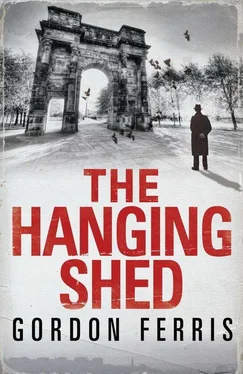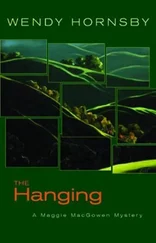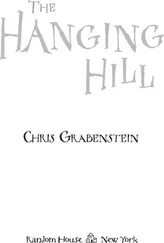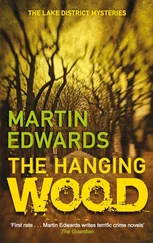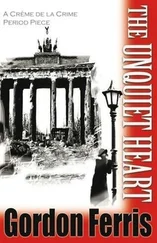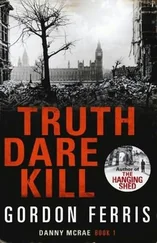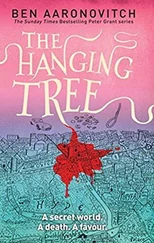Gordon Ferris - The Hanging Shed
Здесь есть возможность читать онлайн «Gordon Ferris - The Hanging Shed» весь текст электронной книги совершенно бесплатно (целиком полную версию без сокращений). В некоторых случаях можно слушать аудио, скачать через торрент в формате fb2 и присутствует краткое содержание. Жанр: Триллер, на английском языке. Описание произведения, (предисловие) а так же отзывы посетителей доступны на портале библиотеки ЛибКат.
- Название:The Hanging Shed
- Автор:
- Жанр:
- Год:неизвестен
- ISBN:нет данных
- Рейтинг книги:5 / 5. Голосов: 1
-
Избранное:Добавить в избранное
- Отзывы:
-
Ваша оценка:
- 100
- 1
- 2
- 3
- 4
- 5
The Hanging Shed: краткое содержание, описание и аннотация
Предлагаем к чтению аннотацию, описание, краткое содержание или предисловие (зависит от того, что написал сам автор книги «The Hanging Shed»). Если вы не нашли необходимую информацию о книге — напишите в комментариях, мы постараемся отыскать её.
The Hanging Shed — читать онлайн бесплатно полную книгу (весь текст) целиком
Ниже представлен текст книги, разбитый по страницам. Система сохранения места последней прочитанной страницы, позволяет с удобством читать онлайн бесплатно книгу «The Hanging Shed», без необходимости каждый раз заново искать на чём Вы остановились. Поставьте закладку, и сможете в любой момент перейти на страницу, на которой закончили чтение.
Интервал:
Закладка:
‘Good God, Brodie! Do you know who Dermot Slattery is?’
‘In my day, before the war, he ran one of the biggest gangs. But I’ve lost touch.’
‘Well, while you were off fighting for King and Country, Slattery was consolidating his grip on the underworld. The man’s a total maniac. But an efficient maniac. He runs a razor gang that controls every dirty racket south of the Clyde. They’ve tried to pin murder charges on him three times to my knowledge.’
‘I remember one of those trials. He had a good lawyer.’ I didn’t mean it as barbed as it sounded, but she handled it well.
‘An advocate’s job is to defend. We don’t judge. He had the best. Laurence Dowdall, QC. I’ve seen him in action. If Adam had had Dowdall on his side, he’d still be in the Garden of Eden.’
‘Better than you?’
She looked at me askance. ‘You don’t think a woman can do this job, do you, Brodie?’
I weighed my answer. ‘Sam, it’s not your sex. It’s your experience. How many murder cases have you defended?’
She took another slug of Scotch. ‘This was my first as lead, all right? But I’ve acted as junior advocate on plenty of others. And just to remind you, I turned an absolute certain guilty verdict into a majority!’
‘How did you get the case?’
She inspected her glass, surprised that it was empty. ‘That’s a better question. I just got the call from the Faculty of Advocates in Edinburgh.’
‘Why you, do you know?’
Her fine jaw jutted forward. ‘I guess my time had come.’
‘Do you really believe that?’
She got up like a Jack-in-the-box. She walked to a table where a decanter sat, and poured herself another whisky. She added the same again of water. She brought the decanter over and splashed some into my glass. She walked over to the fire and stood arms crossed round her slim torso looking into the red embers.
‘Do you know what I really think, Brodie? I think they chose me because they expected me to fail.’ Her voice was weary and a little blurred.
I kept pushing. ‘When did you think this? Before the trial? After? Why did you take it on?’
She turned, her face flushed and glowing. ‘Because I needed to show them! Why do you think! And, by Christ, I nearly did!’
Breakfast was toast and milky tea taken in a rush. Sam looked strained in the morning light, her hair damp from the bath I’d heard her run at 6.30 a.m.
‘Remind me to have more water with my Scotch, will you, Brodie? Or maybe just the water.’
‘Head?’
‘Eyes. Right between them.’ She shook her sleek head, pushed on her specs and became the plain lawyer again. ‘What now?’ she asked, picking up an ancient leather briefcase and heading for the door.
‘I’m going to read the papers.’
She looked quizzical.
‘Down at the library. I’m going to soak up the atmosphere of the trial. See who was saying what. You get a different perspective from the pages of the fourth estate.’
She nodded. ‘Makes sense. Kind of. Then what?’
‘Then I’m going to look up some old pals. Could you get your helpful secretary to make an appointment this afternoon?’ I gave her two names.
She wrote them down and glanced at her watch. ‘Let’s meet at my office at end of day. See what you’ve got. I need something. Anything!’
God Bless Andrew Carnegie. The man was mad for libraries, and Scotland – his birthplace – benefited enormously from his largesse. They say it was conscience money for the way he treated his workers in his American steel company. But he gave wee boys and girls like me a lust for knowledge beyond the bare bones of classroom teaching. His millions helped feed a hunger for the written word in Scotland that turned us from a nation of hard-working peasants and fishermen into an industrial force that helped shape the world. Or it did before the Depression.
The library I knew best, apart from the university one, was at Townhead, a half hour’s walk into and across the city centre on this blue-sky morning. By the time I was on my approach to the fine red sandstone pile I’d warmed myself up nicely and eased arm muscles stiff from my altercation in Doyle’s.
I fondly inspected the building. There seemed to be no bomb damage, and the two statues stood proudly in their niches along the line of the parapet. Stepping inside to the solid carpentry and shining counter was like coming home.
I told the librarian I was researching a book about the trial and wanted access to the newspapers for the period of the trial and one month either side. So from November 1945 through to today, 4 April 1946.
He gazed at me over his half specs. ‘Do you know how many newspapers we take each week, sir?’
I shook my head.
‘Fifty-five. Do you want them all?’
‘Let’s start with the Glasgow Herald and the Scotsman.’ For the facts. ‘And the Daily Record and Glasgow Gazette.’ For the gossip.
I found a seat in the Reading Room under the great arched ceiling. Light streamed in from the roof-lights and boxed my wooden desk in sunlight. It raised nostalgia for university days, before the bloody war, before… before this nightmare. In front of me would be a pile of French or German literature. Everything from Hugo to Euken, Dumas to Kafka, not newspapers with hysterical tales of child molestation and murder. I should have gone into teaching as ordained by my school rector and university tutors. There was even the offer of an assistant lecturer’s position at the university. But the devil in me baulked at continuing a life buried in books. I’d grown up during the Great War, seen my father come back with medals, sergeant’s stripes and a cough. Our tenement square was full of miners and miners’ sons who braved death every day. My notion of what made a man was laid down early. It didn’t involve conjugating irregular French verbs. I was twenty one, robed and capped with learning, but untested.
Percy Sillitoe was recruiting men to enforce civilised behaviour on Glasgow’s mean streets whether the mean citizens wanted it or not. I had a thirst for engaging with the real world for a few years before sinking back into the sweet embrace of intellectual argument and sentence parsing. I hadn’t counted on a second world war breaking out. I had no idea just how much I would be tested.
A trolley arrived and the library assistant began piling the big heavy binders on my desk. I lined all four up in front of me. I planned to do a daily skim of each to get the different textures of the day. I opened up each folder at Thursday 1 November 1945 and plunged in.
FIFTEEN
At first there was little but post-war news, stories of ration-book counterfeiting and troops still coming home from the fronts all over the world. Then came a snippet about a child missing in the Gallowgate and a big search, but nothing hinting about the horrors to come. The Gazette made the only connection with three earlier reported missing kids in Bridgeton and Hutchesontown but consigned it to the back pages. I wondered if my fellow journalists thought there was no mileage in slum kids vanishing, as though family disasters happened too often to be newsworthy.
Then midway through November came a report of Rory’s disappearance and suddenly other papers noticed. But it had taken five to go missing for them to see a pattern emerging. It was hard to say which came first, the newspaper speculation or the mob hysteria that was growing in the gossiping alleyways of the East End and the Gorbals. When Rory was found, and the details of his broken and naked body were disclosed, all hell broke loose. It was on the front pages under banner headlines. The police were under fire and were coming up with a stream of plodding platitudes that fooled no one.
Читать дальшеИнтервал:
Закладка:
Похожие книги на «The Hanging Shed»
Представляем Вашему вниманию похожие книги на «The Hanging Shed» списком для выбора. Мы отобрали схожую по названию и смыслу литературу в надежде предоставить читателям больше вариантов отыскать новые, интересные, ещё непрочитанные произведения.
Обсуждение, отзывы о книге «The Hanging Shed» и просто собственные мнения читателей. Оставьте ваши комментарии, напишите, что Вы думаете о произведении, его смысле или главных героях. Укажите что конкретно понравилось, а что нет, и почему Вы так считаете.
